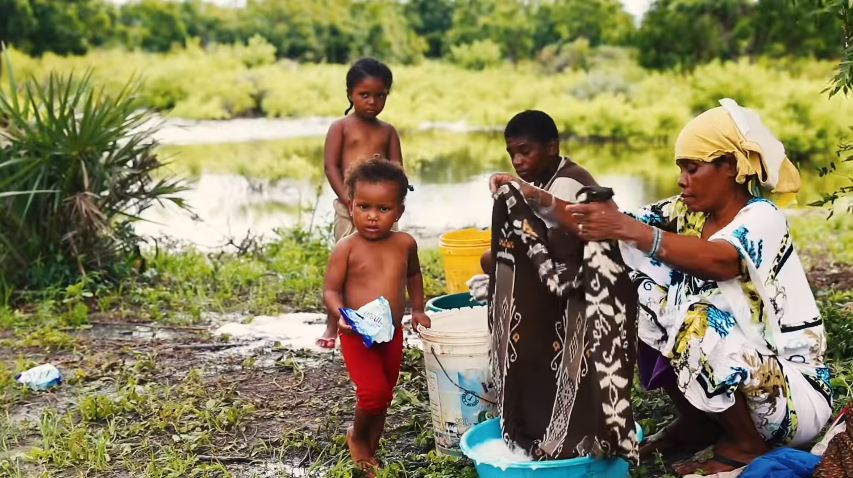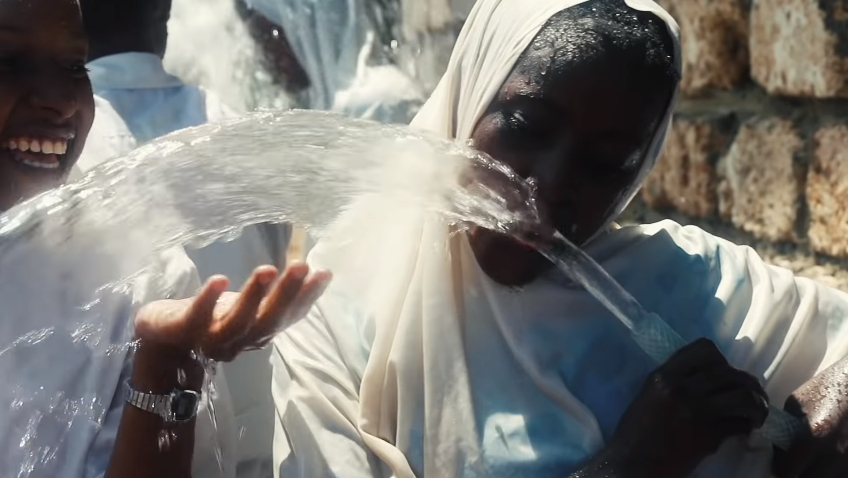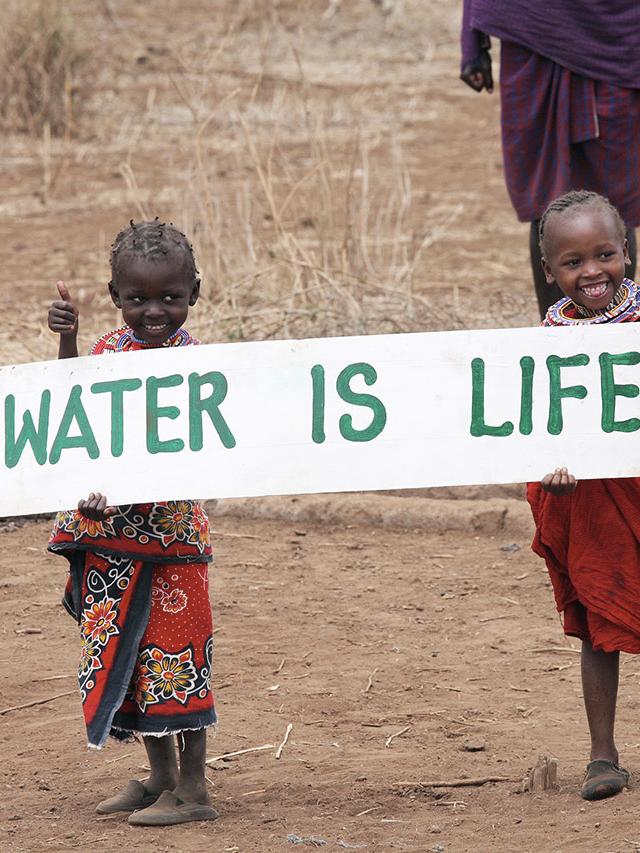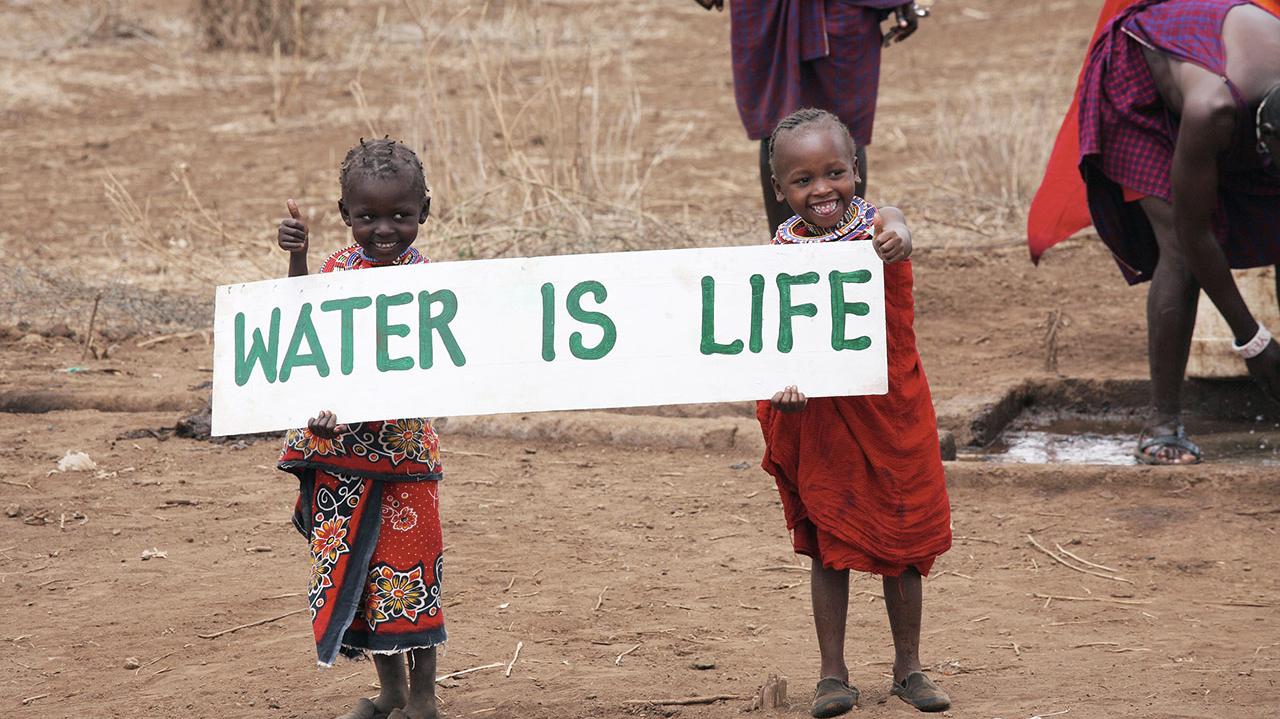Clean water remains a pressing global issue. In 2019, approximately 2.2 billion people worldwide struggled to access drinking water; at the same time, statistics indicate that 97% of the Earth's water is considered undrinkable. Things could worsen as poverty has begun to affect the world's population since the beginning of 2020.
In Kenya, Africa's seventh-largest country with approximately 53 million inhabitants, a new solution for drinking water has recently emerged. The NGO Give Power has used technology to bring clean water to the people by installing a solar-powered desalination system that provides enough water for 35,000 people per day in a village called Kiunga. Previously, they had to travel over an hour to reach a water source believed to be full of parasites and pollutants.

According to data from Water.org, 32% of Kenyans depend on unrepaired water sources, and 48% lack access to basic sanitation. - Photo: Give Power Foundation
Desalination begins with separating salt and minerals from water using a membrane. The untreated liquid then undergoes a filtration process in which the membrane is designed so that each side retains an equal amount of salt and minerals. A chemical process is then carried out to remove the salt.
In addition, Give Power utilizes solar-powered water farms, solar panels, Tesla batteries, and water pumps to support this process.
In particular, the final product does not generate any salt residue that pollutes the environment.
The creation of drinking water using this method has been initially successful, providing a source of quality water for people in Kenya and reducing the risk of disease from water pollution.


 VI
VI EN
EN





























